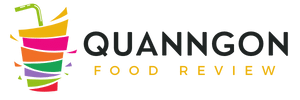
The world of SEO is ever-evolving, a dynamic labyrinth of algorithms, keyword trends, and user experience nuances. Navigating this landscape takes skill, knowledge, and an innate understanding of how search engines tick. For those seeking to embark on an SEO journey, acing the interview stage is the crucial first step. But with a plethora of potential questions looming, it’s easy to feel lost in the woods.
Fear not, intrepid adventurers! This comprehensive guide dissects the most commonly encountered SEO interview questions, equipping you with the tools and insights to confidently traverse the interview maze. Buckle up, sharpen your SEO intellect, and get ready to impress potential employers with your mastery of the digital domain.
Foundation Builders: Grasping the SEO Core
- Define Search Engine Optimization (SEO) in your own words.
This seemingly simple question assesses your fundamental understanding of SEO. Go beyond textbook definitions and highlight its essence: optimizing web content to rank higher in search engine results pages (SERPs) and attract organic traffic. Mention key aspects like keyword research, on-page optimization, technical SEO, and link building.
- Explain the difference between On-page SEO and Off-page SEO.
Demonstrate your grasp of the two pillars of SEO. On-page optimization involves optimizing content itself (keywords, title tags, meta descriptions, headers), while off-page optimization focuses on building external links and online authority. Show the interviewer you understand the synergy between these elements.
- What are some crucial ranking factors considered by Google?
This is a knowledge-testing question. Showcase your familiarity with major factors like content quality, mobile-friendliness, page speed, backlinks, and user engagement metrics. Briefly explain their significance and mention any recent algorithm updates impacting their weight.
- Describe the process of keyword research for SEO.
This assesses your research and analytical skills. Explain how you identify relevant keywords, including tools you use, considering search volume, competition, and user intent. Mention long-tail and short-tail keywords, and touch upon keyword difficulty analysis.
- How would you optimize a webpage for a specific keyword?
Put your theoretical knowledge into practice. Walk the interviewer through the on-page optimization process for a chosen keyword. Discuss targeting keywords in titles, meta descriptions, headlines, alt tags, and content, while maintaining natural language flow.
Content Craft: Spinning SEO Gold
- What are the essential qualities of high-quality SEO content?
Showcase your understanding of content that not only satisfies search engines but also engages users. Emphasize originality, informative value, keyword relevance, clear structure, and user-friendly language. Briefly mention content types like blog posts, infographics, and videos.
- How can you optimize content for featured snippets in Google search results?
Demonstrate awareness of SEO beyond traditional ranking. Explain how to structure content, answer search queries directly, and use bullet points and numbered lists to increase the chances of appearing in featured snippets.
- Discuss strategies for internal linking within a website.
Internal linking plays a crucial role in website architecture and user experience. Show the interviewer you understand linking relevant pages together to improve navigation, distribute page authority, and enhance SEO performance.
- What are some effective content promotion strategies for SEO?
SEO doesn’t end with publishing. Discuss promoting content through social media, email marketing, influencer outreach, guest blogging, and online communities to drive organic traffic and backlinks.
- How would you measure the success of an SEO campaign?
Metrics are your SEO compass. Demonstrate your understanding of key performance indicators (KPIs) like organic traffic, keyword ranking, website conversions, and referral traffic. Explain how you would track and analyze these metrics to evaluate the campaign’s effectiveness.
Link Labyrinth: Weaving the Web of Authority
- Explain the importance of backlinks for SEO and what makes a “good” backlink.
Backlinks are the currency of SEO. Explain how they transfer authority and increase website ranking. Define high-quality backlinks as relevant, authoritative sources with engaged audiences.
- Describe different link-building strategies, both white-hat and black-hat.
Differentiate between ethical and unethical link-building practices. Discuss white-hat strategies like guest blogging, creating linkable content, and directory submissions. Briefly mention black-hat methods like link buying and automated spamming, emphasizing their negative consequences.
- How would you analyze a website’s backlink profile?
Show your detective skills! Explain tools and techniques for analyzing backlinks, identifying their source, authority, and potential spam. Discuss the importance of monitoring and disavowing bad backlinks.
- What are some alternative strategies for building online authority besides backlinks?
Demonstrate your knowledge beyond the backlink bubble. Mention strategies like building.







Leave a Reply